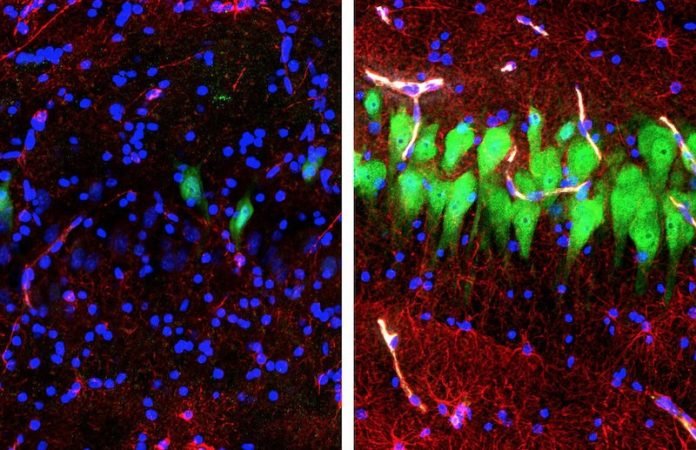
In a new study, scientists have restored some functions in a pig’s brain four hours after its death.
The finding challenges common assumptions about the timing and irreversible nature of some brain functions after death.
The research was conducted by Yale scientists.
In the study, the brain of a postmortem pig was obtained from a meatpacking plant.
It was isolated and circulated with a specially designed chemical solution.
The team found that many basic cellular functions were observed hour after the pig’s death.
But they also suggest that the treated brain did not have any electrical signals found in normal brain function such as perception, awareness, or consciousness.
The brain is a cellularly active brain, not a living brain.
The new finding is against long-held assumptions that cellular death within the brain is a fast and irreversible process.
Previous research has shown that the brain’s electrical activity and signs of awareness disappear within seconds after the oxygen and blood supply are cut off.
It was suggested that a cascade of injury and death molecules are activated, leading to widespread and irreversible degeneration.
But the current finding shows that the brain tissue from the dead animal still showed signs of cellular viability.
The neural cell integrity was preserved, and certain neuronal, glial, and vascular cell functionality was restored.
The researchers suggest that this finding may hold hope for better understanding and treatment of brain disorders.
It could lead to a whole new way of studying the postmortem human brain.
Scientists now have a better ability to examine complex cellular interactions and connectivity.
The senior author of the study is Nenad Sestan, professor of neuroscience, comparative medicine, genetics, and psychiatry.
The study is published in the journal Nature.
Copyright © 2019 Knowridge Science Report. All rights reserved.



